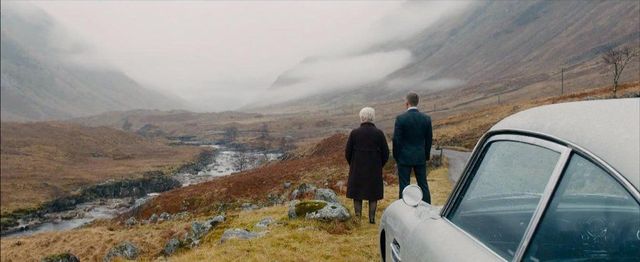A review of On the Road for Critic’s Notebook, another theoretically Unfilmable Book that was always perfectly filmable on the understanding that the end result would not be “On the Road”. Cloud Atlas will be along shortly to restart the argument all over again, even though David Mitchell seemed to model his major printed novel on your average major TV miniseries quite blatantly. There isn’t a moment in that book that doesn’t feel camera-ready.
On the Road is not so camera-ready. Jack Kerouac’s unspooling first-person prose creates a tide of subjectivity that barrels forward forever, no destination in sight, details piling up behind it in large heaps, incidental characters receding in the rear view mirror with their questions unanswered. Director Walter Salles and writer Jose Rivera handle all that by filleting out a decent through-line that tries to keep the tone of melancholy intact, although a feel for the period never seems to be as high on the agenda. There are other costs too.
One stems from the suspicion, whenever contemplating The Beats from this distance, that they would have run a mile from the thought of being considered as cool as their position in the culture now requires. Kerouac found Neal Cassady beatific and loved him for it, but at least in the book the reader can make up their own mind on the topic when faced with their invisible avatars. For a film you have to find an actor who actually is beatific, or take the brave decision to cast someone who isn’t. Either way things are uncomfortably clarified immediately. A worse problem for this particular film is the absence of the actual landscape that Kerouac describes. It’s big sky country all right, but not the right one.
Then there’s the conclusion. The film ends with its main character leaping to the typewriter to get cracking with the writing of On the Road. Which reminded me in turn of the film version of The Rum Diary, which ends with the creation of something recognisably like Hunter S Thompson, the scent of Richard Nixon’s blood in his nostrils. Neither bears much relation to what happened on the page.
These odd self-creating grace notes are more than just a wish to close a book’s loose ends for narrative purposes, although they might achieve that too. There’s an urge, a need, to haul redemption into the frame before the house lights come back up, and to do it about post-war decades whose messy failures nag constantly on the culture. It wants to beatify the very things it’s uneasily criticising at the same time. It feels like a very American anxiety.
 Skyfall review
Skyfall review